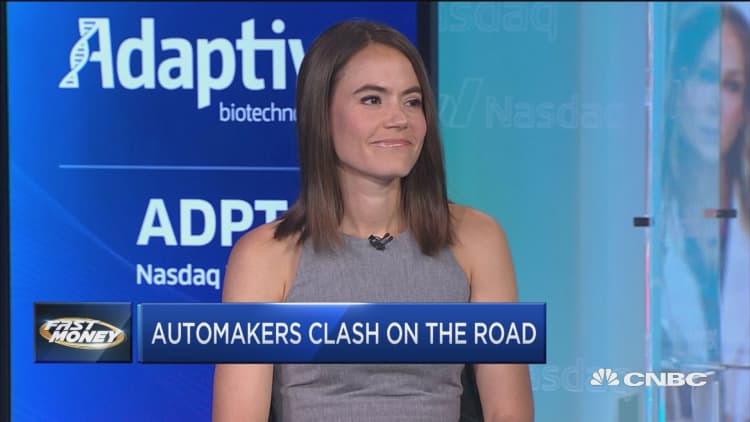A Silicon Valley start-up called Aeva is inching closer to its goal of making self-driving technology more affordable. The start-up has a smaller and more capable version of its hardware, which collects and processes real-time data about a self-driving vehicle's surroundings. Its founders believe the technology can cost as little as $500 per unit -- less than alternatives on the market.
Now, Porsche, the majority owner of Volkswagen — the world's biggest automaker — has put an undisclosed sum into the company, and Volkswagen's self-driving unit is considering using it in a future vehicle.
Aeva's third-generation chip draws on silicon photonics, a technology that's previously been adopted in data center equipment, to power self-driving cars and advanced driver-assistance systems. While full self-driving isn't legal yet in the U.S., automakers and technology companies like Alphabet and Apple have been conducting self-driving research and development for years, and Aeva hopes to be a major supplier in the future.
Aeva's technology can detect the velocity, reflectivity and depth of objects that are more than 300 meters away, co-founder Soroush Salehian said, and each system will cost less than $500 when bought at volume. Automakers can mount the technology wherever they like on their vehicles.
Volkswagen Autonomy, a division of Volkswagen that's tasked with building self-driving modules for the company's different car brands, is evaluating Aeva's new product. The idea would be to incorporate it into VW's ID Buzz electric vehicle, a modern rethinking of the VW Bus, which is set to launch in 2022 or 2023, according to Volkswagen Autonomy CEO Alex Hitzinger.
The ID Buzz will be able to handle normal assisted driving, Hitzinger said. That can involve the ability to help vehicles stay in their lanes or change cruise control speed. VW intends to make a development fleet of the ID Buzz to test a higher degree of automation known as level 4 driving, Hitzinger said. "Then we will most likely upgrade that vehicle and try to start to put it into commercial use," he said.
Hitzinger was technical director of Porsche's 919 hybrid racing car before he joined Apple in 2016 to work on self-driving technology, then went back to Volkswagen in January to pursue self-driving technology at scale. He met Salehian while he was at Apple, but only learned about Aeva's technology this year, he said.
"Aeva just sticks out with its technology," Hitzinger said. "It's higher resolution, it's not sensitive to interference, it has long range, and it has the capability of being packaged in a very small space, low power consumption and being low cost and being truly scalable."
Hitzinger wants to see the technology become even more affordable, and in that spirit, he endorsed Porsche's decision to invest in Aeva, even though the start-up could sell its technology to competing carmakers.
"I don't have a problem with other OEMs using Aeva's technology," Hitzinger said. He said that deployments at scale could make the technology even more affordable.
Aeva was founded in 2017 and is based in Mountain View, California, with more than 80 employees. The start-up announced a deal with Audi, one of Volkswagen Group's 12 brands, earlier this year.
WATCH: ARK Invest's Tasha Keeney on the self-driving car showdown



